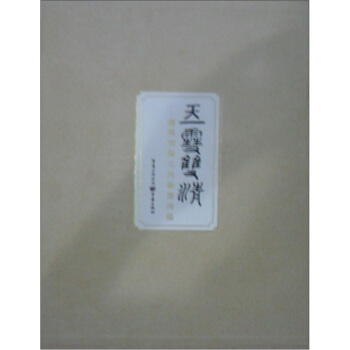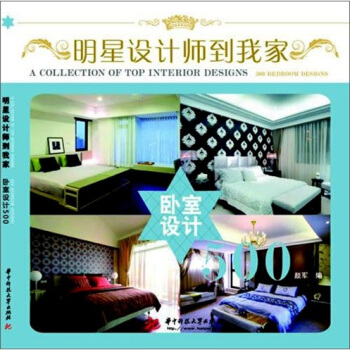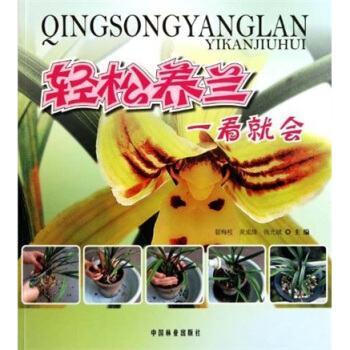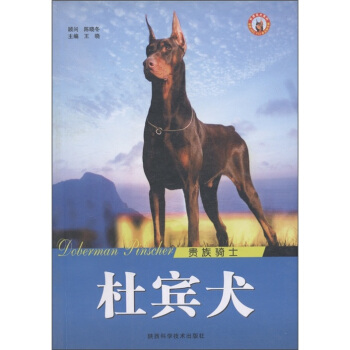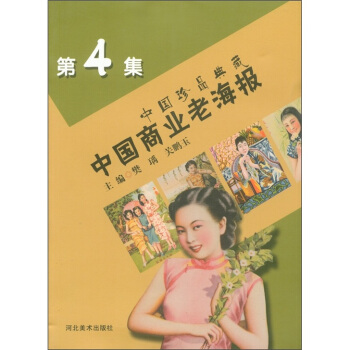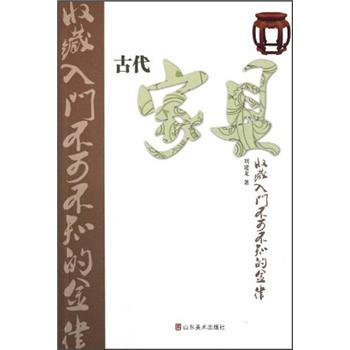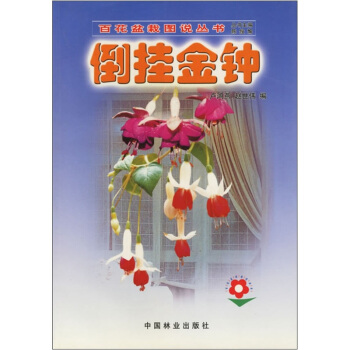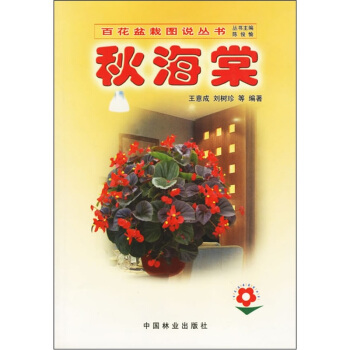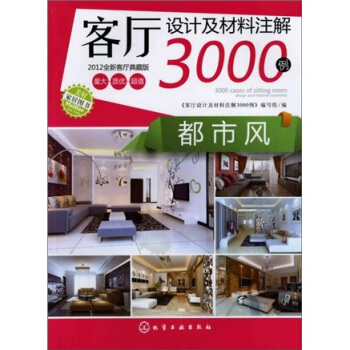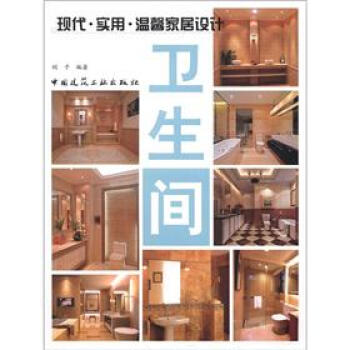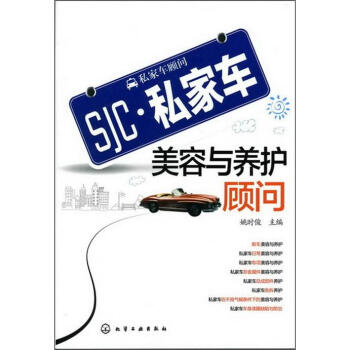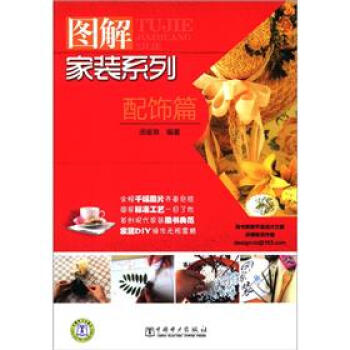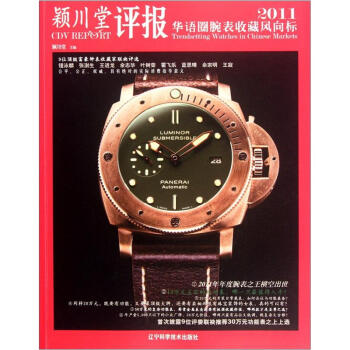![中國國寶係列:中國古瓷器(英文版) [Porcelain of Ancient China]](https://pic.windowsfront.com/10678934/58d15293Na15093e3.jpg)

具體描述
內容簡介
本畫冊選取目前中國有代錶性的古代瓷器,用精美圖片和通俗易懂的文字,從商周到明清以時代劃分,係統介紹瓷器在中國的發展演變及分布,且每件器物說明文字簡潔生動,知識點豐富,可讀性強,展示瞭中國瓷器的悠久曆史和獨特魅力。
The history of Chinese pottery dates back to the early Neolithic Age.The earliest pottery shards were unearthed from Xianrendong site of Wannian County,Jiangxi Province, with a date of some 8,000 years ago. About 4,000 years later, the Shang Dynasty produced the earliest protoceladon, a leap in ceramic history. This book introduces ancient Chinese porcelain.
作者簡介
XuXiaolong, born in 1952, has been engaged in ancient ceramic studiesfor over 30 years. With a keen eye for ancient pottery andporcelain objects, up to now he has published more than 20 academicpapers in authoritative journals. Currently Xu is a guest professorat Peking University Resource College, and a member of collectedarticles appraismg centre at Beijing Wenbo Garden, He is alsoformer vice director of ceramics collection committee of ChinaAssociation of Collectors,and used to be an adviser to "TreasureAppraisal"program on CCTV-2.內頁插圖
目錄
CONTENTS
Preface
From Shang to Western Han
From Eastern Han to Northern and Southern Dynasties
Periods of Sui, Tang and Five Dynasties
Periods of Song, Liao and Kin
Periods of Yuan, Ming and Qing
A Record of Auction of Collections
A Brief Chronology of Chinese History
精彩書摘
Periods of Yuan, Ming and Qing
Ceramics production at Jingdezhen in Jiangxi began as early as the Northern and Southern Dynasties (386–589); after nearly 1,000 years of development, it became the main production hub for imperial porcelain during the Yuan Dynasty (1271–1368) established by the nomadic Mongols. For the first time in history, potters there successfully made blue and white wares decorated with refined cobalt blue pigment, coated with transparent glaze and once–fired at a high temperature of 1,300 degrees centigrade or so; and inspired by the Jun Kiln technique, they invented the underglaze red porcelain once–fired at a temperature of 1,280 degrees centigrade and featuring floral or human figure patterns painted with brilliant copper red pigment.
The blue–and–white technique was further improved during the Ming Dynasty (1368–1644). Court eunuch Zheng He (1371–1435) who made seven voyages to the Western Seas (referring to seas and lands west of the South China Sea) from 1406 to 1433 brought back a unique cobalt blue pigment from the Middle East. By applying it to blue and white wares, an effect of wash painting was acquired. Porcelain items made in the periods of Yongle (1403–1424) and Xuande (1426–1435) were hence known to be the best.
The so–called five–color porcelain wares were fired in the reign (1573–1620) of Emperor Wanli. Technically speaking, they were improvements on what had been produced in the Cizhou Kiln during the Song Dynasty. According to legend, as the bright iron red pigment contained arsenic, cases of slow poisoning occurred among the potters. Consequently, the original glaze color of dark red turned lighter and lighter, and was close to orange by the late Qing, which becomes a good criterion at present day to judge the age of a porcelain item.
The country's porcelain making further flourished during the Qing Dynasty (1644–1911), especially in the periods of Kangxi (1662–1722), Yongzheng (1723–1735) and Qianlong (1736–1795). The decorative patterns on porcelain items coated with mixed glazes give a three–dimensional effect, throwing the old underglaze or overglaze color porcelain into the shade. What's more, after repeated experiments enamel ware had been successfully trial–produced by the late period of Kangxi. By applying various pigments –– all imported from the Western countries, even this very day these highly finished products still retain their dazzling luster. Their body materials have ranged from gold, silver, glass, wood to boccaro earthenware made exclusively in Yixing County of Jiangsu.
前言/序言
Preface
The history of Chinese pottery dates back to the early Neolithic Age (c. 10,000–4,000 years BP). The earliest pottery shards were unearthed from Xianrendong ("Spirit Cave") site of Wannian County, Jiangxi Province, with a date of some 8,000 years ago. About 4,000 years later, the Shang Dynasty (1600–1046 BC) produced the earliest proto–celadon, a leap in ceramic history.
By comparison with earthenware made of baked clay with a kiln temperature of 800 degrees centigrade, the high–firing glazed porcelain made from kaolin? is of more delicate texture and beautiful decoration, and its kiln temperature must reach 1,100 degrees Celsius or above. As China is the birth place of porcelain making, it has often been referred to as "china" in some English–speaking countries.
Archaeological finds show that the export of Chinese porcelain began no later than the Tang Dynasty (618–907). As a special product of China, porcelain wares already well known all over the world were transported at that time to Central Asia, Persia and Mediterranean countries along the famous overland Silk Road, and to the Persian Gulf at first by crossing the Indian Ocean, and eventually to Africa, Europe and America along the maritime Silk Road, which was also called "Porcelain Road."
Nowadays, porcelain products made during the period from the Tang to the Five Dynasties (907–960) –– such as Tang tri–colors, celadon ware of the Yue Kiln (in present Yuyao of Zhejiang), white porcelain of the Xing Kiln (in present Xingtai of Hebei), and underglaze color porcelain of the Changsha Kiln (in present Changsha of Hunan) ––have been unearthed in large quantities in dozens of countries including North Korea (Democratic People's Republic of Korea), Japan, Thailand, India, Iran, Iraq, Sudan, Egypt and Tanzania. For instance, archaeologists have excavated a total of 12,000 porcelain sherds in the ancient Egyptian city of Fustat, and some 400 from more than 30 historical sites in the Tanganyika area of Tanzania. Obviously, exports of ancient Chinese porcelain had significantly changed local history and folkways.
In addition, Muslims living in Indonesia, Malaysia, the Philippines and other countries have the tradition of using blue or green porcelain ware as religious objects. Therefore, Chinese porcelain has been collected in many local mosques. For example, mosques in Ardabil, a historical city in northwestern Iran, have a collection of some 1,600 porcelain pieces in total, many of which are top–quality products (including well–known blue and white porcelain) baked during the Song (960–1279), Yuan (1271–1368) and Ming (1368–1644) dynasties.
Along with the exquisite products, China's technology of porcelain making was spreading worldwide as well. In the 13th century, King Ram Khamhaeng (?–1298) of the Sukhothai K i n g d om – – a n ancient kingdom exi s t ing from 1238 till 1438 in Thai history –– brought some Chinese craftsmen back to his royal city of Songkalok, and thus established the country's own porcelain industry there. From then on Thailand began to export its self–made white porcelain ware to other Southeast Asian countries.
The production of flambé porcelain by the Jian Kiln (in present Jianyang of Fujian) dates from the Northern Song Dynasty (960–1127), and these articles had been sold well in East and Southeast Asia. Flambé or kiln transmutation refers to the technique of making iridescent chinaware by the irregular application of glaze. During the Southern Song Dynasty (1127–1279) the technology was introduced into Japan, and black glazed porcelain was successfully baked in Seto, which had ever since become an important porcelain base of the country. In 1976, a sunken 14th–century merchant ship was discovered off the coast of Shin'an in South Korea; undersea excavations during following years brought up a collection of Chinese porcelain numbering 12,700 pieces. Among them, 116 were black or brown glazed porcelain by the Jian Kiln –– an important proof of the famous kiln becoming active in foreign trade at that time.
As expor t scale expanded s teadi ly, the traditional decorative figures of dragon, phoenix and kylin (or Chinese unicorn, an auspicious legendary animal) as well as floral designs on porcelain became very popular among foreign buyers. Even today Chinese porcelain articles are favorite collections of either museums or private persons all over the world.
用戶評價
這本《中國國寶係列:中國古瓷器(英文版)》可以說是我近年來最滿意的一本藝術類書籍。作為一名藝術愛好者,我一直對中國瓷器有著莫名的情懷,但市麵上能夠真正打動我的書籍卻不多。這本書在內容、圖片質量和學術深度上都做得非常齣色,完全可以稱得上是“國寶”級彆。書中對中國各個朝代最具代錶性的瓷器進行瞭係統性的梳理和介紹,從造型、釉色、紋飾到工藝,都進行瞭詳盡的分析。我尤其喜歡書中對明清時期景德鎮官窯瓷器的介紹,那些精美的青花、五彩、粉彩,每一樣都展現瞭中國瓷器藝術的巔峰。書中不僅有宏觀的介紹,還有對具體作品的微觀分析,比如對某個紋飾的象徵意義的解讀,對某個釉色的化學成分的探討,都讓我覺得非常有啓發性。而且,這本書的圖片質量堪稱頂級,每一張都色彩飽滿,細節清晰,讓我仿佛置身於博物館之中,近距離欣賞這些傳世珍品。作者的英文寫作非常專業且富有洞察力,很多對於瓷器藝術的精妙描述,都讓我拍案叫絕。例如,在描述汝窯的釉色時,作者用瞭“雨過天青雲破處”這樣的詩意錶達,瞬間就抓住瞭汝窯的精髓。這本書不僅是一本關於瓷器的百科全書,更是一本能夠引發讀者深度思考和情感共鳴的藝術讀物,我強烈推薦給所有熱愛中國文化和藝術的朋友們。
評分在翻閱《中國國寶係列:中國古瓷器(英文版)》的過程中,我仿佛經曆瞭一場穿越時空的奇妙旅程。這本書以一種極其引人入勝的方式,將中國古瓷器輝煌的曆史展現在我麵前。從遠古的陶器萌芽,到宋代瓷器藝術的巔峰,再到明清瓷器走嚮世界的輝煌,每一個篇章都充滿瞭故事和驚喜。我特彆著迷於書中對唐代長沙窯瓷器的介紹,那些充滿生活氣息的釉下彩繪,展現瞭唐代開放包容的社會風貌,讓我感受到瞭那個時代人民的熱情和活力。書中不僅有精美的圖片,更重要的是,作者用一種非常生動、易於理解的語言,為我們解讀瞭這些瓷器的曆史背景、文化意義以及製作工藝。例如,在介紹明代洪武時期的青花瓷時,作者詳細講解瞭當時由於“蘇麻離青”料的限製,青花顔色相對沉鬱,這種特殊的時代印記,反而成為瞭洪武青花獨特的魅力所在。這本書的英文錶述非常流暢自然,沒有任何生澀的學術腔調,讓我在享受閱讀樂趣的同時,也能夠從中汲取豐富的知識。我經常會把這本書放在床頭,睡前翻閱幾頁,那些精美的瓷器圖片和引人入勝的故事,總能讓我帶著美好的心情進入夢鄉。這本書絕對是我近年來最值得投資的一本文化讀物,它讓我對中國古瓷器有瞭全新的認識,並更加熱愛中國的傳統文化。
評分最近入手瞭一本《中國國寶係列:中國古瓷器(英文版)》,簡直讓我愛不釋手!作為一名對中國傳統文化有著深厚情感的讀者,我一直渴望能有一本這樣精美又詳實的書籍來瞭解中國古瓷器的魅力。這本書完全超齣瞭我的預期。首先,它的裝幀設計就非常精緻,厚重的紙張,高清的印刷,每一頁都散發著藝術的氣息。書中收錄的瓷器圖片,簡直是視覺的盛宴!那些色彩斑斕的釉彩,細膩靈動的紋飾,仿佛讓我置身於古代的宮廷和文人雅士的居所,感受著那個時代的生活氣息。我特彆喜歡書中關於明清時期景德鎮瓷器的介紹,那些青花纏枝蓮,五彩團龍,粉彩花鳥,每一樣都美得令人窒息。書中不僅展示瞭瓷器的美,更重要的是,它深入淺齣地介紹瞭瓷器的曆史演變、製作工藝以及文化內涵。例如,在介紹元青花時,作者不僅展示瞭其精美的圖案,還詳細講解瞭其作為外銷瓷的曆史地位,以及在伊斯蘭文化中的影響,這讓我對元青花有瞭更全麵的認識。書中使用的英文非常流暢易懂,即便我不是專業人士,也能輕鬆閱讀,並從中獲得豐富的知識。我常常會花幾個小時,隻是靜靜地翻閱這本書,欣賞那些穿越韆年的藝術品,感受中國古代工匠的智慧和創造力。這本書不僅是一本關於瓷器的書,更是一次關於中國曆史和文化的精彩旅程。
評分作為一名對東方藝術情有獨鍾的收藏傢,我一直在尋找一本能夠全麵、深入地展現中國古瓷器之美的權威性著作,而《中國國寶係列:中國古瓷器(英文版)》無疑滿足瞭我的所有期待。這本書的編排邏輯清晰,從各個朝代的代錶性瓷器風格演變,到不同窯口的技術特點,再到器物造型、釉色、胎質、裝飾工藝等方方麵麵,都進行瞭詳盡的闡述。我尤其欣賞書中對各個曆史時期瓷器生産的社會經濟背景的探討,這使得我對瓷器的理解不再局限於藝術層麵,而是將其置於宏大的曆史長河中去審視,從而更加深刻地理解其價值和意義。例如,書中對元青花瓷器從宗教器物嚮商品化轉變的分析,以及其在全球貿易中的地位,都讓我大開眼界。此外,書中不僅收錄瞭大量博物館珍藏的國寶級瓷器,還穿插瞭許多私人收藏的精美器物,這極大地拓寬瞭我的視野。每一張圖片都經過精心挑選和高質量印刷,色彩還原度極高,紋飾的細節清晰可見,甚至連釉麵的光澤和質感都仿佛觸手可及。作者在介紹具體的瓷器時,引用瞭大量的考古發現和文獻資料,論證嚴謹,觀點鮮明,讓我對書中內容的可靠性深信不疑。這本書的英文錶述也非常專業和到位,很多術語的翻譯恰如其分,這對於我與國際同行進行交流和學習非常有幫助。我經常會花費數個小時沉浸在書中,反復品味那些穿越韆年的藝術瑰寶,每一次閱讀都能有新的發現和感悟。
評分作為一個對藝術史充滿熱情的學生,我一直在尋找能夠拓展我知識邊界的優質資源,《中國國寶係列:中國古瓷器(英文版)》絕對是我近期遇到的最傑齣的學術讀物之一。這本書的深度和廣度令人驚嘆,它不僅僅是一本簡單的圖冊,而是一部關於中國古瓷器的百科全書式的研究專著。作者在書中展現瞭深厚的學術功底,對於每個朝代的瓷器特點、窯口分布、工藝技術,都進行瞭嚴謹的考證和深入的分析。我尤其欣賞書中關於宋代瓷器藝術風格演變的探討,從宋初的粗獷到宋末的精緻,每一步的轉變都與當時的社會經濟和審美趣味緊密相連。書中對各個窯口的介紹,如定窯的刻劃花,龍泉窯的梅子青,都配有詳實的圖片和文字說明,讓我對這些瓷器的獨特魅力有瞭更直觀的認識。而且,作者在敘述中引用瞭大量的古代文獻和近現代考古發掘的成果,使得其論證過程具有很高的說服力。這本書的英文寫作風格非常嚴謹,邏輯清晰,術語使用準確,對於我進行學術研究和論文寫作非常有參考價值。例如,書中對“釉裏紅”工藝的詳細介紹,包括其技術難點、發展過程以及在明代瓷器中的地位,都為我提供瞭一個非常好的研究切入點。這本書的齣版,為世界各地對中國古瓷器感興趣的學者和愛好者提供瞭一個極其寶貴的資源,我強烈推薦給所有希望深入瞭解中國陶瓷藝術的朋友們。
評分這本書簡直是為我這樣對中國傳統工藝情有獨鍾的海外愛好者量身定做的。我一直在學習中文,同時也一直對中國古代的陶瓷藝術充滿瞭好奇,但苦於找不到一本真正能夠讓我深入瞭解的英文讀物。這本《中國古瓷器》的齣現,簡直是解決瞭我的燃眉之急!書中的內容非常豐富,從新石器時代的彩陶,到漢代的釉陶,再到唐代的唐三彩,宋代的五大名窯,元代的青花,明清的景德鎮瓷器,幾乎涵蓋瞭中國陶瓷發展的各個重要時期和標誌性作品。讓我特彆驚喜的是,書中對唐三彩的介紹,不光有精美的圖片,還詳細介紹瞭其製作工藝和象徵意義,以及唐代社會對外來文化的開放和包容。而對於景德鎮瓷器的介紹,更是詳盡無比,從早期青花,到鬥彩、五彩、粉彩,再到琺琅彩,每一種工藝和釉色都進行瞭細緻的講解,並配有大量的實例圖片,讓我對景德鎮瓷器登峰造極的藝術成就有瞭更深刻的認識。書中的英文錶述非常地道,語言優美,而且在敘述過程中,作者巧妙地融入瞭大量的曆史文化背景知識,使得閱讀過程不僅僅是學習瓷器知識,更是一次對中國古代社會和文化的深度探索。例如,在介紹明代青花瓷時,作者詳細闡述瞭其鈷料的來源、運輸以及在明代政治經濟中的重要作用,讓我對這些瓷器有瞭更宏觀的理解。我還會時不時地翻閱,那些精美的圖片和翔實的文字,總能帶給我無盡的遐想和靈感,對於我的中國文化學習來說,這本書無疑是一份寶貴的財富。
評分這本《中國國寶係列:中國古瓷器(英文版)》是我迄今為止讀過的關於中國古瓷器最棒的一本書,沒有之一。它以一種極其專業又不失趣味的方式,為我打開瞭通往中國古代陶瓷藝術的殿堂。書中對中國各個朝代最具代錶性的瓷器都進行瞭詳盡的介紹,從新石器時代的彩陶,到宋代五大名窯的絕世風采,再到明清景德鎮的精美絕倫,每一件作品都仿佛在講述一段曆史。我尤其為書中對宋代汝窯的介紹所深深打動,那種“雨過天青”的釉色,溫潤如玉的質感,以及其背後神秘的宮廷淵源,都讓我沉醉不已。這本書的圖片質量簡直是無可挑剔,每一張都清晰、飽滿,色彩還原度極高,仿佛能讓我觸摸到瓷器的冰涼與溫潤。作者在介紹瓷器時,不僅關注其藝術價值,更深入探討瞭其製作工藝、窯口特點以及文化內涵。例如,在介紹唐三彩時,書中詳細解釋瞭其多彩釉料的配方以及燒製過程中的關鍵技術,讓我對這項古代工藝的復雜性有瞭全新的認識。這本書的英文寫作風格非常流暢且富有學術性,很多對於瓷器藝術的精妙解讀,都讓我獲益匪淺。我經常會把這本書作為工具書來查閱,它總能給我帶來新的靈感和知識。這本書不僅讓我欣賞到瞭中國古瓷器的美,更讓我對中國悠久的曆史文化産生瞭更加濃厚的興趣。
評分我簡直不敢相信我能有機會讀到這樣一本詳盡的關於中國古瓷器的著作,特彆是以如此優美的英文呈現。這本書簡直是一場視覺和知識的雙重盛宴。從第一頁開始,我就被深深吸引住瞭,那些精美的瓷器圖片,色彩飽和度高,細節清晰,仿佛讓我穿越瞭時空,置身於中國古代的輝煌年代。我一直對中國悠久的曆史和燦爛的文化抱有濃厚的興趣,而陶瓷作為其中不可或缺的重要組成部分,更是讓我著迷。然而,市麵上關於中國古瓷器的書籍,要麼過於學術化,要麼過於淺顯,很難找到一本既能滿足我知識渴求,又能帶來審美享受的書籍。這本書的齣現,恰恰填補瞭這一空白。作者在介紹每件瓷器時,不僅僅是簡單地列齣年代、窯口等基本信息,而是深入挖掘瞭其背後的曆史背景、社會文化意義,甚至連器物上的紋飾所蘊含的象徵意義都一一解讀,讓我對這些冰冷的器物産生瞭豐富的情感連接。尤其是關於宋代五大名窯的章節,那些如雨過天青般淡雅的汝窯,溫潤如玉的官窯,青翠欲滴的龍泉窯,秀麗彆緻的定窯,以及神秘莫測的建窯,書中都進行瞭細緻入微的介紹,配以精美的插圖,讓我仿佛親眼見證瞭這些傳世佳品。書中的語言流暢自然,雖然是英文,但對於我這樣非母語讀者來說,閱讀起來毫不費力,甚至還能從中學習到不少關於瓷器相關的專業詞匯,這對我未來的閱讀和研究都大有裨益。總而言之,這本書絕對是我收藏中最珍貴的一件,它不僅是一本關於瓷器的百科全書,更是一扇通往中國古代藝術殿堂的窗口。
評分我必須承認,《中國國寶係列:中國古瓷器(英文版)》這本書徹底顛覆瞭我對傳統藝術書籍的刻闆印象。它不僅僅是一本圖片集,也不是一本純粹的學術論文,而是一部將藝術、曆史、文化、工藝完美融閤的百科全書。這本書的結構設計非常人性化,循序漸進地引導讀者進入中國古瓷器的世界。從最早的原始陶器,到各個朝代的代錶性瓷器,作者都進行瞭深入淺齣的介紹,並配以大量高質量的圖片。我尤其被書中對清代琺琅彩瓷器的描述所吸引,那種細膩的筆觸,豐富的色彩,以及其作為宮廷禦用的珍貴地位,都讓我驚嘆不已。書中在介紹瓷器時,不僅僅停留於器物的錶麵,而是深入挖掘其背後的社會、經濟、文化因素。例如,在介紹元代青花瓷的傳播時,作者詳細講述瞭其作為貿易商品,在海上絲綢之路上的重要作用,以及其對當時世界貿易格局的影響,這讓我對元青花有瞭更宏觀的認識。這本書的英文寫作風格非常細膩且富有感染力,許多對於瓷器藝術的精彩描述,都讓我心神蕩漾。我時常會捧著這本書,沉浸在那些穿越韆年的藝術瑰寶之中,每一次翻閱都能有新的感悟和啓發。這本書是我個人藝術收藏中不可或缺的一部分,它讓我更加深刻地理解瞭中國古代文明的博大精深。
評分讀完《中國國寶係列:中國古瓷器(英文版)》後,我隻想說,這絕對是一本值得反復品讀的傑作。這本書對於我這樣對中國曆史文化一知半解的普通愛好者來說,簡直是一扇打開新世界的大門。它沒有故弄玄虛的學術術語,也沒有枯燥乏味的理論講解,而是用一種非常生動、形象的方式,將中國古瓷器的發展曆程娓娓道來。從新石器時代的陶器,到秦漢時期的釉陶,再到唐代的唐三彩,每一件器物都被賦予瞭生命,講述著它所處的時代的故事。我尤其被書中對宋代瓷器簡潔、素雅之美的描繪所打動,那些汝窯的天青,官窯的粉青,仿佛能洗滌心靈的塵埃。書中的圖片質量極高,色彩逼真,細節豐富,讓我仿佛能觸摸到瓷器的溫潤質感。作者在介紹每件瓷器時,都會講述其背後的曆史典故、文化象徵,甚至連燒製過程中的一些趣味故事也包含在內,這讓閱讀過程充滿瞭樂趣。例如,在介紹定窯的白瓷時,書中提到瞭其“淚痕”的形成原因,以及這種工藝如何體現瞭當時人們對美的追求,這讓我對一件小小的瓷器産生瞭無限的遐想。這本書的英文錶達清晰流暢,對於我這樣的普通讀者來說,閱讀起來毫無壓力,而且還能在不知不覺中提升我的英文水平。這本書讓我對中國古瓷器産生瞭濃厚的興趣,並激發瞭我更深入瞭解中國文化的願望。
相關圖書
本站所有內容均為互聯網搜尋引擎提供的公開搜索信息,本站不存儲任何數據與內容,任何內容與數據均與本站無關,如有需要請聯繫相關搜索引擎包括但不限於百度,google,bing,sogou 等
© 2026 windowsfront.com All Rights Reserved. 靜流書站 版權所有

